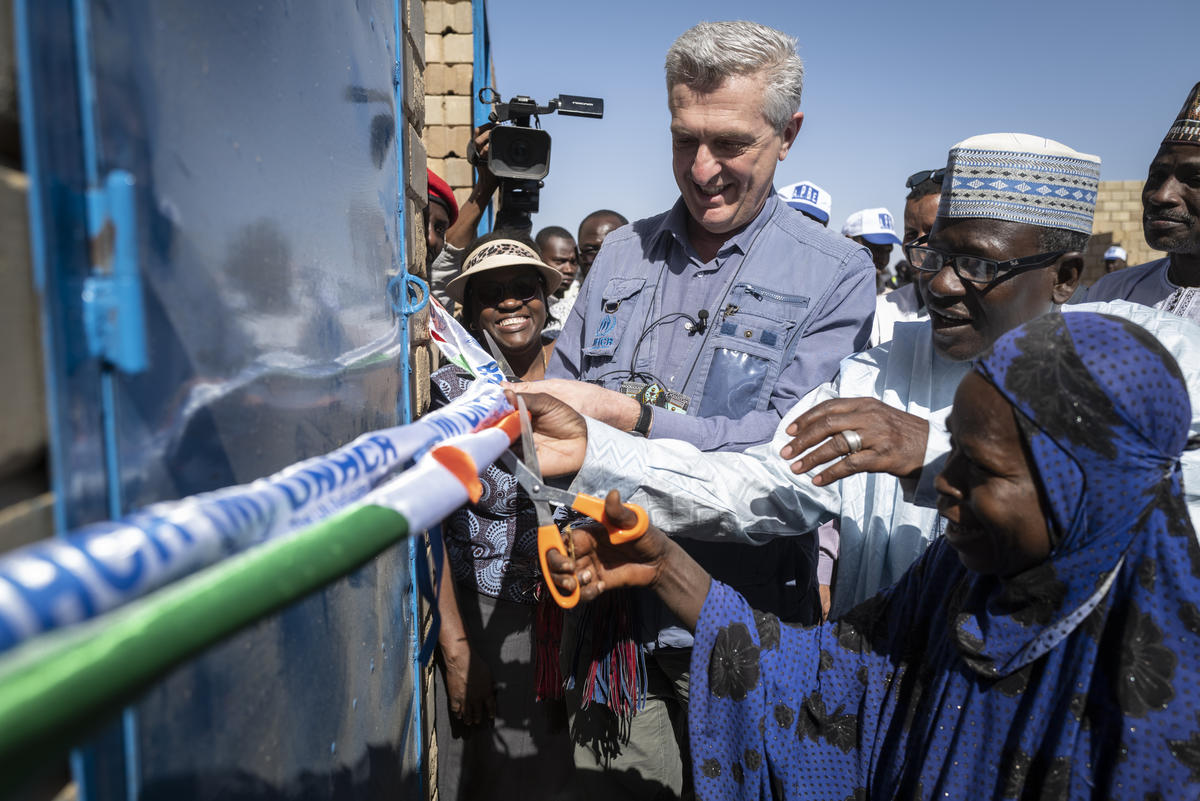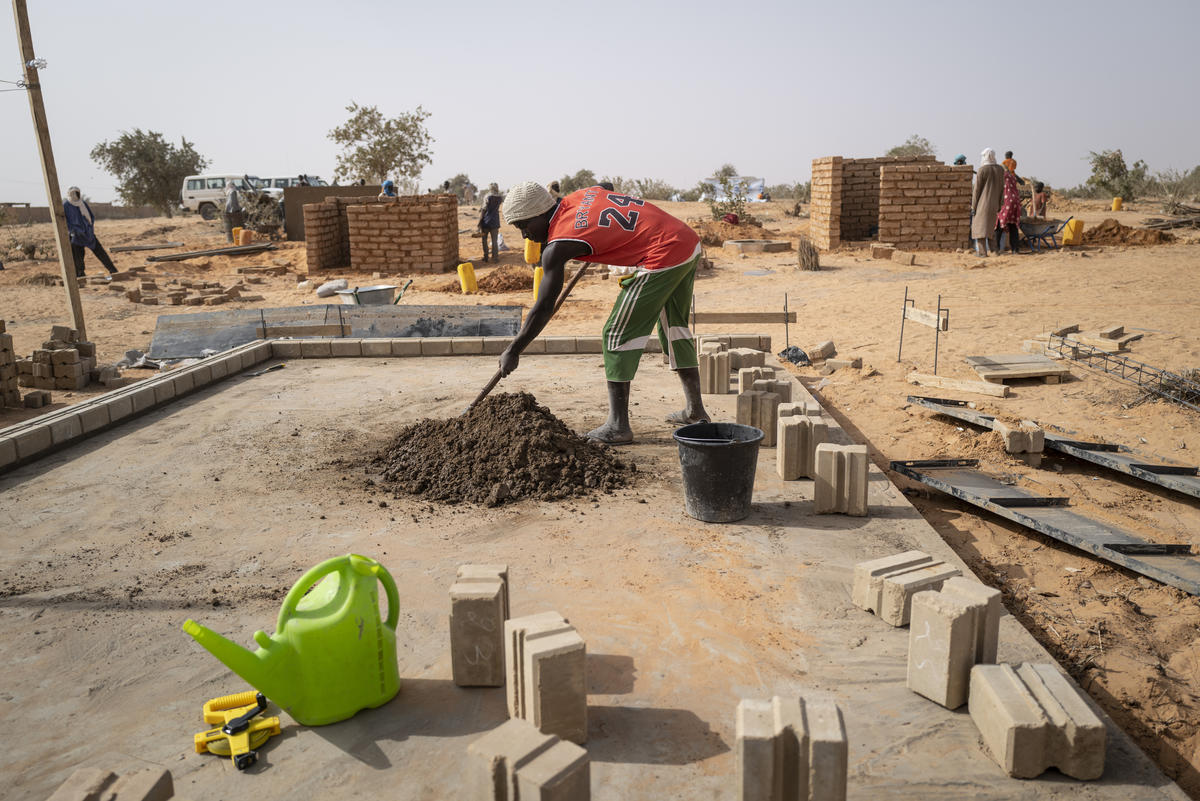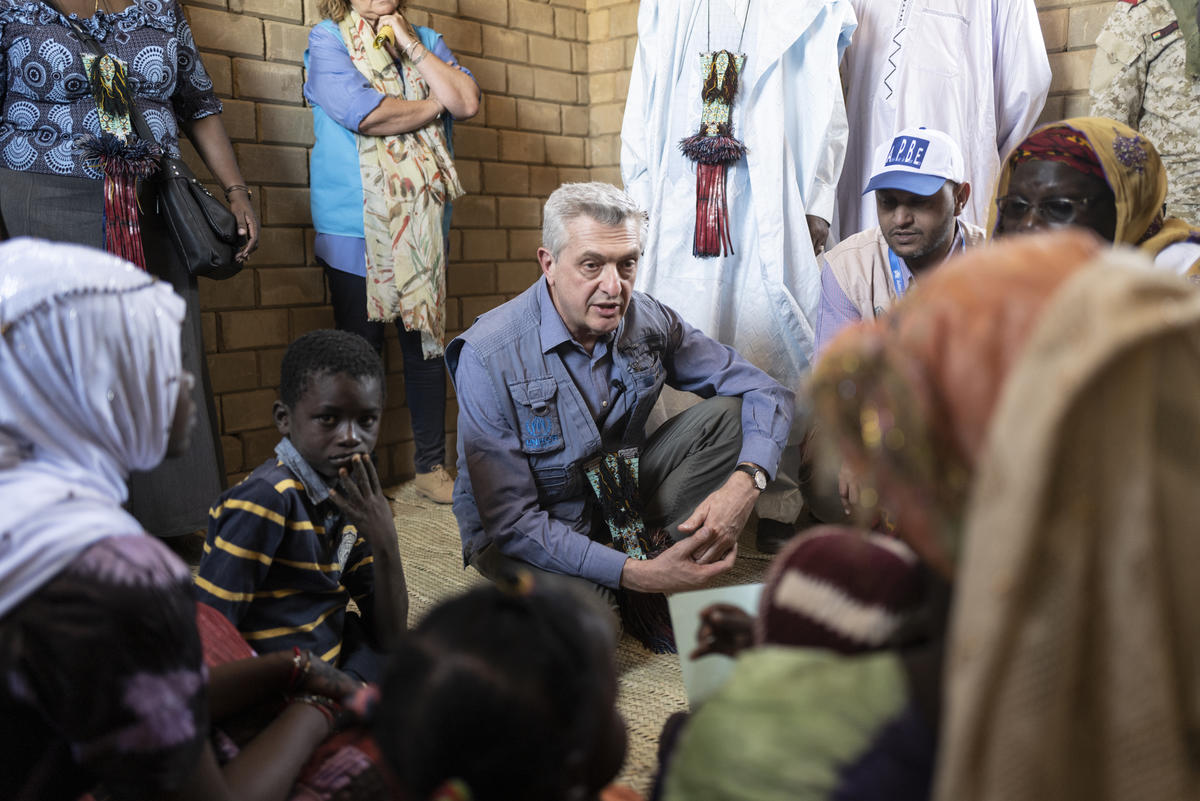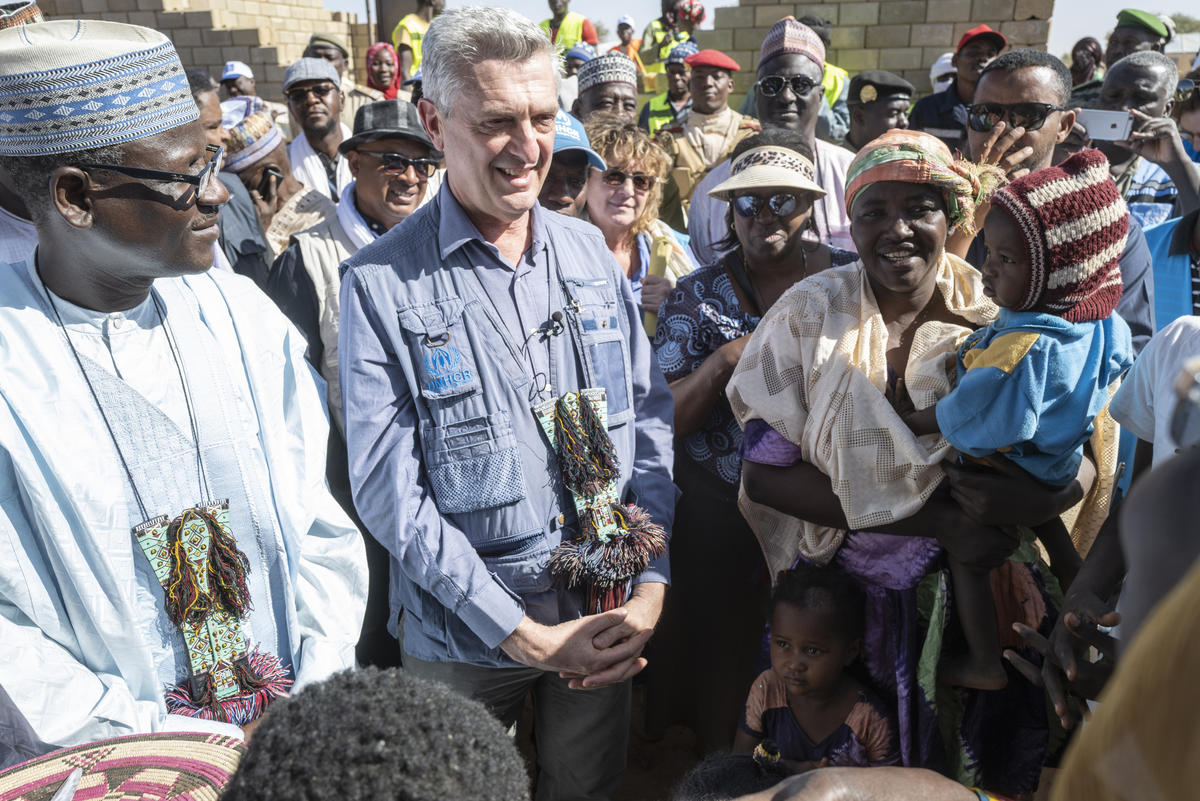Refugees and hosts work together to build a safe home in Niger
A freshly paved road splits the town of Ouallam into two worlds. On the eastern side of the street, tattered, makeshift shelters are scattered alongside temporary latrines, tents serving as provisional schools and food distribution centres.
On the western side, sturdy brick houses with windows are going up on large, organized plots of land. Built with environmentally friendly interlocking bricks, the houses are meant to last 25 to 30 years in this harsh, desert climate. Soon, a primary school will be constructed, not far from the liquid petroleum gas station that is already open.
Today, Malian refugee Mariam crossed this road. After five years in a temporary shelter in remote Mangaize refugee camp, the single mother of four will be one of the first to move into a house in this new community.
Mariam is cutting a path that thousands of others will travel on, as 1,000 houses go up over the next 18 months, made for refugees and vulnerable Nigeriens both. Their community follows a blueprint laid out by UNHCR, the UN Refugee Agency, and its partners to build stronger, longer-term solutions for refugees, pending a resolution to the conflict that has forced them to leave their country.
“This house will change our lives,” said Mariam Walate Intanere, 25, while sitting atop the bricks that will soon become her new home.
“During the rainy season I have to constantly rebuild the shelter and stake it down again and again. It will be safer – you can’t even compare it.”
UNHCR and the Nigerien government have made moving refugees from camps into local communities a top priority as years pass and the situation in Mali remains dire. Participating in local life allows refugees to better adapt to their surroundings, but also to enjoy fundamental rights, such as the freedom to move, work, go to school, or visit a doctor.
"This house will help our family stay safe and dry during the rainy season."
But in places such as Ouallam, which is already home to a vulnerable population, the process must also strengthen local infrastructure and systems. To that end, UNHCR and its partners have begun reinforcing water systems, and investing in schools and health centres. Even the construction work on the 1,000 new homes will benefit the host community—with half of the 400 jobs going to members of the local community (the other half will go to refugees).
“There is a strong collaborative spirit here in Ouallam between the local community and the refugees, which lays a strong foundation for this innovative project,” UN High Commissioner for Refugees Filippo Grandi said during a visit with refugees and local Ouallam residents.
Grandi was there to meet with the first two families – one local family and one refugee family – who will move into these new homes. These discussions marked the start of Grandi’s three-country tour to bring attention to the challenges facing Niger – and the wider Sahel region.
But the foundation the refugees and their hosts build in the urban area of Ouallam must be able to withstand the crises surrounding it.
Niger is currently absorbing the shocks of crises that have erupted across the Sahel—a fragile region that encompasses swaths of countries south of the Sahara. The 2011 revolution in Libya and a 2012 conflict in Mali during which a coalition of armed groups seized large parts of the country sent tens of thousands of refugees into Niger.
The violence spread across borders as terrorists, organized crime syndicates and bandits exploited ethnic tension, poverty and weak governance to further their own aims. Burkina Faso, Mali and Nigeria have been torn apart by ethnic fighting and violence that has forced thousands to escape. Niger is now home to more than 215,000 refugees, mostly from Mali and Nigeria.
Today, Niger is grappling with its own crisis – increasing violence within its own borders has led to massive internal displacement of citizens as well as the refugees it hosts. In regions bordering Burkina Faso and Mali, more than 80,000 Nigeriens have been forced to flee, a 50 per cent increase over last year. In the past two weeks, 600 arrived in Ouallam alone.
Hana Abdou, 63, told UNHCR an armed group threatened her community and forced them to leave the village empty handed. It took her nine days to travel 150 kilometres. For two days, they had no food or water. It was the second time Hana has been forced to run.
"We need to keep providing assistance ... but also think about longer-term solutions."
Earlier this month, terrorists attacked a Nigerien army base, leaving at least 89 people dead. It was the deadliest attack Niger experienced in recent years. Following the attack, UNHCR received reports of armed groups kidnapping and killing civilians and looting property.
In spite of the scale of the challenges it faces, Niger—one of the world’s poorest countries— remains one of the most generous toward refugees.
The Government of Niger raised the idea of providing housing for 40,000 refugees last December during the first-ever Global Refugee Forum held by UNHCR in Geneva. The government said this would offer refugees an alternative to the isolation of camp life.
With much of Niger facing a state of emergency and military operations scaling up, UNHCR and other humanitarian organizations could no longer reach many displaced people, including refugees, depriving already vulnerable people of essential services and emergency assistance.
With the threat of violence growing by the day, UNHCR and the Government of Niger had no choice but to accelerate their plan. Ouallam — as well as the towns of Ayerou and Abala in the Tillaberi region —offered a safe, urban haven and economic opportunity. That is why UNHCR rushed to relocate refugees there.
“Increasing insecurity and displacement is very worrying,” Grandi said. “That is why we need to keep providing assistance to people with immediate needs, but also think about longer-term solutions to ensure refugees and anyone forced from home can quickly live more independently.”











